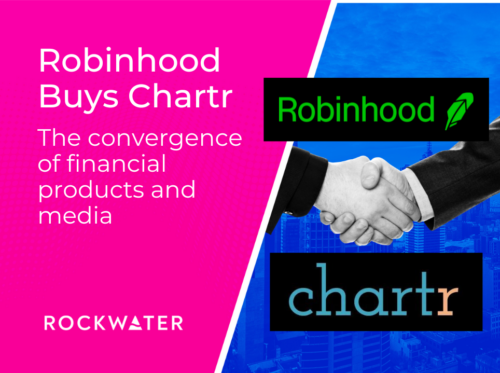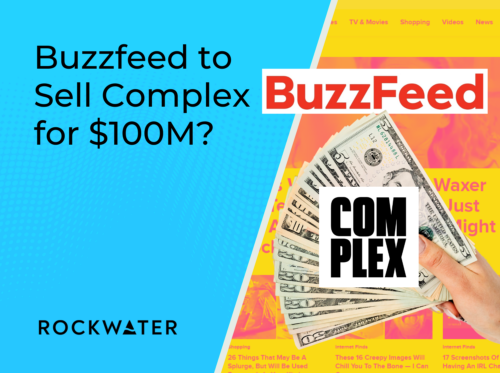Ziff Davis Buys CNET for $100M+, Preps for More M&A
RockWater Roundup
RockWater analysis to make you a better investor and operator. Today we discuss Ziff Davis’s acquisition of CNET, including the deal value prop, key deal terms, and a POV on the company’s digital rollup strategy.
————
Ziff Davis acquired CNET for over $100M.
That price is down from $1.8B CBS paid for it in 2008.
And $500M current owner Red Ventures paid for it in 2020.
The new owner is betting on more digital M&A with its $670M warchest.
Let’s break it down…
💰SELLER: CNET
- Tech news and reviews site
- 38M visitors in Jun 2024
- Founded 1994 by Halsey Minor, Shelby Bonnie
- Today’s content focus: consumer tech, home & wellness, energy, broadband, personal finance
- Founding content focus: tech, science, culture w/ news, reviews, buying guides, features, commentary
- Core biz model: drives traffic via SEO, monetizes via affiliate links
- 10% layoffs in Mar 2023, or 12 people
- Above layoffs incl 50% news and video staff, and 35% of ZDNet
🔎M&A HISTORY CNET
- 2002 CNET Networks acquired tech publisher Ziff-Davis Inc. (different co vs current buyer) and online services co ZDNet for $1.6B
- 2008 CBS acquired CNET Networks for $1.8B
- 2020 Red Ventures acquired CNET for $500M (incl other small properties)
- 2022 Red Ventures sold CNET properties TV Guide, Metacritic, GameSpot, Giant Bomb to Fandom for $50M
✨SELLER OWNER: Red Ventures
- PE-backed marketing-turned-media company
- Provides client services, owns brands, and makes investments
- Focus in travel, education, home connectivity, health, financial services, energy
- Portfolio incl Bankrate, creditcards.com, Lonely Planet, Points Guy, more
🤝BUYER: Ziff Davis
- Vertically focused digital media and internet company
- 100+ years old, started out as magazine publisher
- Portfolio incl brands in tech, shopping, gaming/entertainment, connectivity, health/wellness, cybersecurity, martech
- Brands incl PCMag, Mashable, IGN, Retailmenot, Lifehacker (bought from G/O Media in 2023)
- 2010 CEO led buyout of Ziff Davis w/ PE shop Great Hill Partners
- 2012 Ziff Davis sold to J2 Global
- 2012 Went on M&A spree buying tech outlets
- 2021 J2 Global changed name to Ziff Davis, spun off eFax biz
🪙FINANCIALS: Ziff Davis
Stock price as of 10:10AM ET on 8.12…
- Stock price: $41.64
- Mkt Cap: $2B
- Down 38% YTD
- Down 39% YoY
1H 2024 financials as of 6.30.24…
- Revenue: Up 0.3% to $635M
- Adj EBITDA: Down 2% to $197M
- Adj EBITDA margin: Down 0.7 pps to 31%
- FCF: Down 27% to $73M
- C&CE: $687M
YE 2023 financials as of 12.31.23…
- Revenue: Down 1.9% to $1.36B
- Adj EBITDA: Down 4.9% to $482M
- Adj EBITDA margin: Down 1.1 pps to 35.4%
- FCF: Down 8.3% to $211M
- LT DEBT: $1B, up from $999M
- C&CE: $738M, up 16%
🤝DEAL DETAILS
- Undisclosed
- Will close in 3Q 2024
💰DEAL VALUE PROP
- Part of ZD digital media rollup strategy
- CNET audience is attractive to tech advertisers, is well-known brand with authority
- Use CNET to target consumers/households/businesses navigating tech and telecom purchases
- ZD is bullish on AI-powered content as Meta/Google take majority of digital ad spend
🧐POST DEAL OPS
- Undisclosed
WHAT ELSE I FIND INTERESTING & DEAL INSIGHTS… 🤔
Let’s dive into Ziff Davis’ YE 2023 financial performance…
The company breaks out revenues into 2 main buckets, Digital Media, and Cybersecurity and Martech.
Cybersecurity and martech is grouped into 1 revenue bucket, subscriptions. Since 2021, this revenue has declined 17% to $291M.
But let’s go to the primary revenue driver, and what’s most interesting for this newsletter’s readership…
Digital Media is grouped into 3 revenue buckets: advertising, subscriptions and licensing, and other. In 2023, the revenue buckets were 70%, 26%, and 4% of total revenue, respectively. Since 2021, overall digital media has been flat around $1.07B, and total advertising revenue is declining while subscriptions and licensing are growing. Other revenue remains mostly flat. So the mix is changing, and towards more recurring revenues which is a good trend, but there’s no overall growth.
Not great.
The key driver of falling ad revenue seem to be a result of lower ad client retention (down to 87% from 92%), a falling # of advertiser clients (down 101 to 1943), and flatline growth in revenue per advertiser ($120k). In contrast, subscription customers are growing, churn rate is falling, but qtrly revenue per customer is staying around the same.
Per the company’s MD&A section in their 10K, management notes they’re optimistic about overall ad spend moving online from offline, but I’m not seeing a growth benefit in their financial results. Likely part of the trend of Meta and Google grabbing more and more digital ad spend share VS content owners (particularly legacy digital content brand owners).
Management also notes that digital media M&A is a key part of their strategy, which is highlighted in the CNET deal value prop rationale in my above summary. The thesis is that O&O content will enable the company to grab more ad share (particularly when content volume ramps via AI tools), but again, I’m not seeing that in their overall results.
A key point that emerges here is where exactly that digital spend is going that’s not spent with Meta and Google directly. From my writing about digital media M&A and capita flows (which follow revenue), we know a lot of it is going to social video publishers and influencers, and not web 2.0 digital ad networks of legacy website brands. I haven’t done a deep dive into CNET to understand their digital brand portfolio, and the mix of their digital media inventory including social video and influencer networks, so I can’t give a detailed take on the quality of their media mix.
But a takeaway from a quick financial review is that CNET needs a new growth strategy to supercharge growth in their digital portfolio.
That could be leveraging their existing media brands to create new digital media inventory that’s more attractive to their ad partners, so as to grow their overall client network (currently declining Q4 2023 YoY, though 2Q 2024 figures showed a better trend here) and grab more client budget share (staying flat). It could also be through acquisitions of different types of digital O&O properties that are again more appealing to advertisers, and through the acquisition of new agency service offerings for their marketing partners, like branded content and influencer marketing, which could improve new marketer client acquisition and also improve sell thru of existing and new inventory.
Let’s do a quick valuation analysis of Ziff Davis…
$2B mkt cap based on $41.64 stock price.
- LESS: $687M cash and equivalents
- PLUS: $1B LT debt
Implies a total enterprise value of $2.3B.
With Ziff Davis giving 2024 revenue guidance of $1.41B to 1.47B in their 2Q 2024 earnings report, that equates to a 1.6x forward revenue multiple.
Based on 2024 adj EBITDA guidance of $500-521M from the same report, that equates to a 4.4x to 4.6x forward adj EBITDA multiple.
On a 2023 LTM basis, the revenue multiple is 1.7x and the adj EBITDA multiple is 4.8x (based on revenue of $1.36B and $482M).
Overall, that falls in the range of today’s digital media public and M&A comps. It’s a bit on the lower end relative to those companies that are higher growth, which is to be expected.
————
I’m the founder of RockWater Industries. We do financial and strategy advisory for media, agencies, and creator economy. From M&A and fundraising to consumer research and go-to-market planning.
DM me on LinkedIn or email me chris @ wearerockwater dot com



